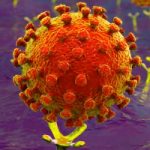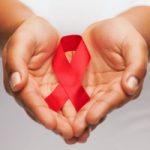 Man, 2020 was tough!
Man, 2020 was tough!
Most of us were numb from the ongoing horrors of the coronavirus, and shocking political developments in the U.S. all but dominated the zeitgeist. And lest we forget just how much bad news there was in 2020, multiple articles came out around the new year to remind us of all the awful things that we endured.
Yes, it was pretty bad, but when you focus too much on the bad, it is easy to lose sight of the good. And there was actually quite a lot of good stuff that happened in 2020, too.
While these things may not have been as headline-grabbing or immediately impactful, it’s worth taking a few moments to acknowledge that even in 2020 there was plenty of good going on.
Following is a list of 42 good things that happened in 2020.
While I wrote some of these summaries, I had quite a lot of help putting this post together. My partner did the initial research to put the list together, then a good friend and colleague wrote most of the summaries.
Enjoy, and stay positive!
 Paid parental leave for U.S. federal workers.
Paid parental leave for U.S. federal workers.
Starting in October 2020, the new parental leave law that is part of the National Defense Authorization Act of 2020, provides up to 12 weeks of paid leave to mothers and fathers of newborns, newly adopted children, or foster children. The law covers an estimated 2 million U.S. federal workers. [Photo credit: Ken Hammond, USDA]
American Bar Assoc., January 2020
⤛⥈⤜
 Innovative new vaccine technique developed in response to coronavirus.
Innovative new vaccine technique developed in response to coronavirus.
Researchers published the entire genetic code of the coronavirus, making it “free to download, share, use, and analyze.” This gave scientists around the world a fast start to better understand the virus and to develop a vaccine. Importantly, this led to innovative techniques using messenger RNA that may revolutionize vaccine development and other medical areas in general. [Photo credit: Science Photo Library]
BBC, January 2020
Want more about this? Check out this video from Joe Scott.
⤛⥈⤜
 Population of blue whales increased.
Population of blue whales increased.
A survey recently conducted by the British Antarctic Survey with the support of the University of Auckland counted 55 blue whales in southern oceans, compared to just occasional sightings of one or two in the past decades. “To witness 55 of them now return to what was once a preeminent feeding ground for the population has been described as ‘truly, truly amazing’ by marine mammal specialist Dr Trevor Branch from the University of Washington, Seattle.” [Photo credit: Wikimedia]
BBC, February 2020
⤛⥈⤜
 Sweden and Austria stopped burning coal for energy.
Sweden and Austria stopped burning coal for energy.
Sweden shut down its last coal-fired plant in April 2020, a full two years earlier than expected, and Austria announced that it had shuttered its last coal-fired power plant. The Austrian plant, in the town of Mallach, had been in operation for 34 years. [Photo credit: Benita5 | Pixabay]
Sweden: EcoWatch, April 2020 | Austria: Energy World, April 2020
⤛⥈⤜
 Number of Fortune 500 woman CEOs hit an all-time high.
Number of Fortune 500 woman CEOs hit an all-time high.
2020 saw 37 women serving as CEO of companies on the Fortune 500 list. While 37 of 500 may seem like a small number, it is up from 33 in 2019, signaling an upward trajectory. Reporting indicates that in 2000, there were only two women CEOs in the ranks of the Fortune 500. [Photo credit: helpsg | Pixabay]
The Hill, May 2020
⤛⥈⤜
 Costa Rica legalized same-sex marriage.
Costa Rica legalized same-sex marriage.
In 2018, marriage equality was formally recognized by the Costa Rican Constitutional Court, with same-sex marriages allowed starting in May 2020. Costa Rica is the first Central American country to recognize same-sex marriage. [Photo credit: Ludovic Berton (Wikimedia Commons)]
Human Rights Watch, May 2020
⤛⥈⤜
 Sudan criminalized female genital mutilation.
Sudan criminalized female genital mutilation.
The government of Sudan criminalized the practice of female genital mutilation (FGM). Because FGM is deeply enmeshed in the Sudan’s religious and cultural beliefs, finalizing legislation concerning the practice was challenging. Convictions of crimes involving FGM are punishable by up to three years in prison. [Photo credit: jacejojo | Pixabay]
Jurist, June 2020
⤛⥈⤜
 Record level of philanthropic donations.
Record level of philanthropic donations.
In the first six months of 2020, charitable giving increased by 7.5% over the previous year. The largest increase was in donations less than $250, which increased 19.2%. [Photo credit: Heather Paque | Pixabay]
Philanthropy News Digest, June 2020
⤛⥈⤜
 Legal protections against discrimination for gay and transgender workers.
Legal protections against discrimination for gay and transgender workers.
The United States Supreme Court handed down a decision that added sexual orientation and gender identity to the classifications protected by Title VII of the Civil Rights Act of 1964. According to the Court, “an employer who fires an individual merely for being gay or transgender defies the law.” [Photo credit: Sabrina_ Groeschke | Pixabay]
National Law Review, June 2020
⤛⥈⤜
 Portugal ended coal burning two years ahead of schedule.
Portugal ended coal burning two years ahead of schedule.
EDP, the Portuguese energy utility, announced that it expects to accelerate the closure of its last coal-fired power plant by two years over its original estimate. EDP closed its Sines coal power plant in 2020, and expects to close its last coal plant in 2021. Closure of all coal plants was originally planned for 2023. The CO2 emissions from the EDP’s Sines coal power plant made up 13.5% of CO2 emissions in Portugal. According to the group Europe Beyond Coal, the other countries expected to end the usage of coal by 2025 include France (2022), Slovakia (2023), Portugal (2023), the UK (2024), Ireland (2025) and Italy (2025). [Photo credit: Erdenebayar | Pixabay]
Climate Change News, July 2020
⤛⥈⤜
 New Zealand addressed the gender pay disparity.
New Zealand addressed the gender pay disparity.
The parliament of New Zealand passed a new law that ensures pay equity between men and women. The vote was unanimous. The law also requires that women be paid the same as men in certain male-dominated industries that employ women in “different but equal-value work.” [Photo credit: David_Peterson | Pixabay]
Global Citizen, July 2020
⤛⥈⤜
 Scientists developed cotton that grows in different colors
Scientists developed cotton that grows in different colors
Scientists working in the Commonwealth Scientific and Industrial Research Organisation (CSIRO) in Australia have developed a new breed of cotton which has colored tufts rather than the traditional white, eliminating the need for harmful chemical dyes. The colors produced so far include bright yellows, “golden-orange,” and deep purple.”While cotton is renewable, recyclable and biodegradable, the use of chemical dyes reduces this process. In fact, undyed cotton fabric can be completely compostable. [Photo credit: Erbs55 | Pixabay]
MSN, July 2020
⤛⥈⤜
 Apple commits to 100% carbon-neutral supply chain.
Apple commits to 100% carbon-neutral supply chain.
Apple announced a plan to bring its entire business to 100% carbon neutral by the year 2030. Per the company’s news release, “The company is already carbon neutral today for its global corporate operations, and this new commitment means that by 2030, every Apple device sold will have net zero climate impact.” [Photo credit: Daniela Kloth | Wikimedia]
Apple, July 2020
⤛⥈⤜
 Better support for black-owned businesses in the U.S.
Better support for black-owned businesses in the U.S.
According to Google, June of 2020 saw searches of the term “black owned businesses near me” at an all-time high in the U.S. It is believed that the increase is due to initiatives to support local Black-owned businesses in the wake of the outcry against racism and police brutality after the killing of George Floyd. We surmise that the increase in the number of Google searches translates to greater financial support. [Photo credit: Depositphotos]
Global News, July 2020
⤛⥈⤜
 Largest and most detailed 3D map of the Universe.
Largest and most detailed 3D map of the Universe.
The Sloan Digital Sky Survey (SDSS) released a comprehensive analysis of the largest 3-D map of the universe ever created. This groundbreaking model is the result of the combined effort of hundreds of scientists from around the world who mapped the universe using the Sloan Foundation telescope for nearly 20 years.
University of Utah, July 2020
⤛⥈⤜
 Great American Outdoors Act enacted.
Great American Outdoors Act enacted.
In August of 2020, the United States enacted the Great American Outdoors Act to increase funding for maintenance and infrastructure improvements in U.S. national parks, wildlife refuges, and other public lands. The act is funded with an allocation of up to 1.9 billion dollars a year for five years. [Photo credit: Jon Sullivan, Wikimedia]
National Park Service website, Bill enacted August 2020
⤛⥈⤜
 First private commercial crewed space flight.
First private commercial crewed space flight.
In the summer of 2020, SpaceX launched two NASA astronauts to the ISS aboard the Crew Dragon spacecraft, making SpaceX the first private spaceflight company to send a crewed spacecraft to space. [Photo credit: NASA]
Space.com, August 2020
⤛⥈⤜
 Increased use of wind and solar power.
Increased use of wind and solar power.
Wind and solar power accounted for a record high of 10% of all electricity produced globally in the first half of 2020. During the same period, coal plant output decreased by 8.3% year-over-year, and electricity produced from wind and solar increased by 14%. [Photo credit: mrganso | Pixabay]
Reuters, August 2020
⤛⥈⤜
 LGBTQ representation in the U.S. government more than doubled.
LGBTQ representation in the U.S. government more than doubled.
A new study by LGBTQ Victory Institute’s Out For America reveals that 843 openly LGBTQ elected officials currently serve across all levels of government, up from 417 in June 2016. According to the President of Victory Institute, Mayor Annise Parker, “When LGBTQ people are in elected office and in the halls of power, they change the hearts and minds of their colleagues and it leads to more inclusive legislation.” [Photo credit: David_Peterson | Pixabay]
Republic World, August 2020
⤛⥈⤜
 Kenya announced boom in Elephant population.
Kenya announced boom in Elephant population.
Kenya’s Wildlife Service reported that the country’s elephant population increased from 16,000 elephants in 1989 to 34,800 by the end of 2019. The increase is attributed to heavy anti-poaching efforts as well as a recent increase in the birth rate of elephant calves. [Photo credit: Action4ifaw | Wikimedia Commons]
NPR, August 2020
⤛⥈⤜
 AIDS-related deaths at an all-time low.
AIDS-related deaths at an all-time low.
The United Nations Programme on HIV/AIDS (UNAIDS) announced that HIV-related deaths declined by 60% since the peak in 2004. New HIV therapies mean that people infected with HIV can enjoy a “normal to near-normal” life expectancy. [Photo credit: Depositphotos]
UN AIDS, September 2020
⤛⥈⤜
 Zimbabwe banned coal mining in all its national parks.
Zimbabwe banned coal mining in all its national parks.
A campaign by environmentalists is credited with overturning a 2015 decision by the government of Zimbabwe that allowed coal exploration and potential mining in the country’s national parks. The reversal applies to all of its national parks including Hwange game park, which is home to more than 40,000 elephants and the endangered black rhino.
BBC, September 2020
⤛⥈⤜
 England started paying men’s and women’s soccer teams equally.
England started paying men’s and women’s soccer teams equally.
The Football Association (FA) of England announced that the pay for men’s and women’s players for the national soccer teams is now equal. The parity includes match fees and bonuses. Shortly after the FA announced its decision, Brazil, Australia, Norway, and New Zealand followed. [Photo credit: jSD Dirk | Flickr]
Reuters, September 2020
⤛⥈⤜
 Increased paid paternity leave for French workers.
Increased paid paternity leave for French workers.
In 2002, France implemented a 14 week paternity leave, and in September of 2020, doubled it to 28 weeks. According to President Emmanuel Macron, “it is first and foremost a measure promoting equality between women and men,” and will promote “greater equality in the sharing of chores from the very first day.” Seven of the 28 days are mandatory, and approximately 70% of fathers take advantage of the full duration of leave. [Photo credit: Pixabay]
Euro News, September 2020
⤛⥈⤜
 First room-temperature superconductor.
First room-temperature superconductor.
Superconducting below temperatures of about 15° Celsius (59° Fahrenheit) was achieved by UNLV physicist Ashkan Salamat and University of Rochester assistant professor of physics and mechanical engineer Ranga Dias. Superconductors transmit electricity without energy loss. Up to now superconductors have required extreme cold, making it prohibitively expensive. This new room-temperature process is a critical step toward revolutionizing energy production, transportation, and more. [Photo Credit: Josh Hawkins/UNLV Photo Services]
Nature, October 14, 2020
⤛⥈⤜
 Tristan da Cunha created a significant marine protection zone.
Tristan da Cunha created a significant marine protection zone.
Tristan da Cunha (Tristan), a group of islands in the South Atlantic Ocean, made a commitment to protecting 90% of its waters surrounding the territory. About 270,000 square miles will be off-limits to human activity and a small remainder set aside for sustainable fishing for the roughly 260 residents of the islands. This protection will benefit the seals, sharks, and whales that inhabit the waters, as well as tens of millions of seabirds. The newly protected area will be the largest area of marine protection in the Atlantic Ocean.
Conservation International, November 2020
⤛⥈⤜
 Huge advancement in predicting protein folding.
Huge advancement in predicting protein folding.
AlphaFold (an AI network developed by Google AI project, DeepMind) has solved the puzzle of accurately predicting protein structures from their amino-acid sequence. This will “vastly accelerate efforts to understand the building blocks of cells and enable quicker and more advanced drug discovery.” [Photo credit: DeepMind]
Nature Research, November 2020
⤛⥈⤜
 Tasmania became powered 100% by renewable energy.
Tasmania became powered 100% by renewable energy.
In 2020, Tasmania, an island state of Australia, claimed that it was the first Australian state to be powered 100% by renewable energy. The state reached the impressive milestone with the commissioning of the last two wind turbines at its Granville wind farm. This declaration by Tasmania, “places Tasmania alongside countries like Scotland, Iceland and Costa Rica which have also made the transition to 100 per cent renewable electricity.”
Renew Economy, November 2020
⤛⥈⤜
 U.K. announced it will ban sales of new gasoline and diesel cars.
U.K. announced it will ban sales of new gasoline and diesel cars.
The U.K. announced that it will stop selling new diesel and petrol (gasoline) cars and vans by the year 2030. This is an acceleration of the previous deadline of 2040. [Photo credit: mmurphy | Pixabay]
CNBC, November 2020
⤛⥈⤜
 Argentina legalized early-term abortions.
Argentina legalized early-term abortions.
Lawmakers in Argentina voted to legalize abortion up to the 14th week of pregnancy. This was a significant change from the previous abortion law, which allowed abortion only in cases of rape or when the mother’s health is at risk. [Photo credit: jorono | Pixabay]
BBC, December 2020
⤛⥈⤜
 Scientists worked to convert CO2 into jet fuel.
Scientists worked to convert CO2 into jet fuel.
A team of researchers at the University of Oxford revealed a cost-effective, efficient method of producing jet fuel from CO2. Not only does this reduce the reliance on fossil fuels, it also recycles CO2, a greenhouse gas that drives climate change. This new method could produce a competitively priced fuel that could potentially eliminate the high emissions burden of air travel, and travelers’ guilt of a hefty carbon footprint.
Forbes, December 2020
⤛⥈⤜
 Record number of women in the new U.S. Congress.
Record number of women in the new U.S. Congress.
A new record number of women (at least 141, composed of 105 Democrats and 36 Republicans) will serve in the 117th Congress. Women now make up 26% of the members in both the House and the Senate. [Photo credit: Wikimedia]
Rutgers, CAWP, December 2020
⤛⥈⤜
 Advances in cultured meat.
Advances in cultured meat.
Cultured, or lab-grown, meat is developed without having to slaughter animals. Since about 15% of greenhouse gas emissions is caused by raising animals, the move toward cultured meat deliver environmental benefits as long as production facilities use clean energy. [Photo credit: FreeToUseSounds | Pixabay]
The Week, December 2020
⤛⥈⤜
 Significant growth in electric-vehicle businesses.
Significant growth in electric-vehicle businesses.
One of the hottest growth markets in 2020 was for electric vehicles, including those from Tesla and other manufacturers. There was also significant growth in companies that provide the ecosystem for the industry, including charging stations, fleet services, and financing. [Photo credit: paulbr75 | Pixabay]
PR Newswire, December 2020
⤛⥈⤜
 Gaia released huge star map of the Galaxy.
Gaia released huge star map of the Galaxy.
The Gaia space observatory released an updated map of the Milky Way galaxy that goes beyond a mere static image — it shows a moving picture of the anticipated shifts of stars over time. The Gaia observatory spacecraft was launched by the European Space Agency in 2013 and measures the positions, distances, and motions of stars. [Photo credit: Sinousxl575 | Pixabay]
Nature, December 2020
⤛⥈⤜
 Improved minority and female representation on S&P 500 boards.
Improved minority and female representation on S&P 500 boards.
The boards of the 500 large companies indexed by the S&P added 413 new directors in 2020, and women and minority men made up 59% of the new appointees. Also, for the first time since data tracking was started in 1998, each of the boards has at least one female director. [Photo credit: familievankessel | Pixabay]
CNBC, December 2020
⤛⥈⤜
 Switzerland parliament approved same-sex marriage.
Switzerland parliament approved same-sex marriage.
After seven years of legislative debate and voting, the Swiss parliament approved same-sex marriage. The new law also extends parental rights to each member of a lesbian couple who have a child via sperm donation. [Photo credit: marcelkessler | Pixabay]
Jurist, December 2020
⤛⥈⤜
 Banks defunded drilling in the Arctic National Wildlife Refuge.
Banks defunded drilling in the Arctic National Wildlife Refuge.
Bank of America joined Goldman Sachs, JPMorgan Chase, Wells Fargo, Citi, and Morgan Stanley in refusing to provide financing for oil and gas development in the Arctic, including the Arctic National Wildlife Refuge. Worldwide, nearly 30 banks have committed to the withdrawal of funding for Arctic drilling operations, which would bring catastrophic harm to hundreds of species that live and spawn there. [Photo credit: Lisa Hupp |USFWS via Flickr]
Sierra Club, December 2020
⤛⥈⤜
 14 nations committed to sustainable coastal management.
14 nations committed to sustainable coastal management.
Countries representing nearly 40% of the world’s coastlines and 20% of the globe’s fisheries committed to sustainable management of 100% of their coastal waters in the next 15 years. This group of countries, called the Ocean Panel, includes Norway, Palau, Portugal, Ghana, Namibia, Kenya, Chile, Mexico, Jamaica, Canada, Japan, Indonesia, Fiji, and Australia. [Photo credit: MartinStr | Pixabay]
World Resources Institute, December 2020
⤛⥈⤜
 Boom in climate-smart business enterprises.
Boom in climate-smart business enterprises.
The U.S. Chamber of Commerce released a summary of the actions that its member companies have taken to invest in carbon reducing technologies. Businesses making public commitments include Citi, Chevron, Google, and United. Company initiatives vary, with Chevron linking compensation for executives and other employees to attainment of its climate-related goals. [Photo credit: Quangpraha | Pixabay]
U.S. Chamber of Commerce, December 2019
⤛⥈⤜
 Cost of lithium batteries dropped dramatically.
Cost of lithium batteries dropped dramatically.
Lithium batteries, used in devices from home electronics to electric cars, have dropped in price by 89% in the past decade. With cost decreases expected to continue, electric cars will soon be priced similarly to cars that run on fossil fuels. [Photo credit: Pixabay]
Fast Company, December 2020
⤛⥈⤜
 U.S. takes first step toward federally decriminalized marijuana.
U.S. takes first step toward federally decriminalized marijuana.
The U.S. House of Representatives approved the decriminalization of marijuana. The bill removed cannabis from the list of federally controlled substances, and also addressed the cancellation of certain arrests and convictions involving marijuana. The bill will move to the U.S. Senate for consideration. [Photo credit: 7raysmarketing | Pixabay]
NPR, December 2020
Still want more? Check out this article from Psychology Today: What Was Good in 2020? More Than You Might Think.
 If you enjoyed this post, please consider subscribing using the form near the top of the page!
If you enjoyed this post, please consider subscribing using the form near the top of the page!